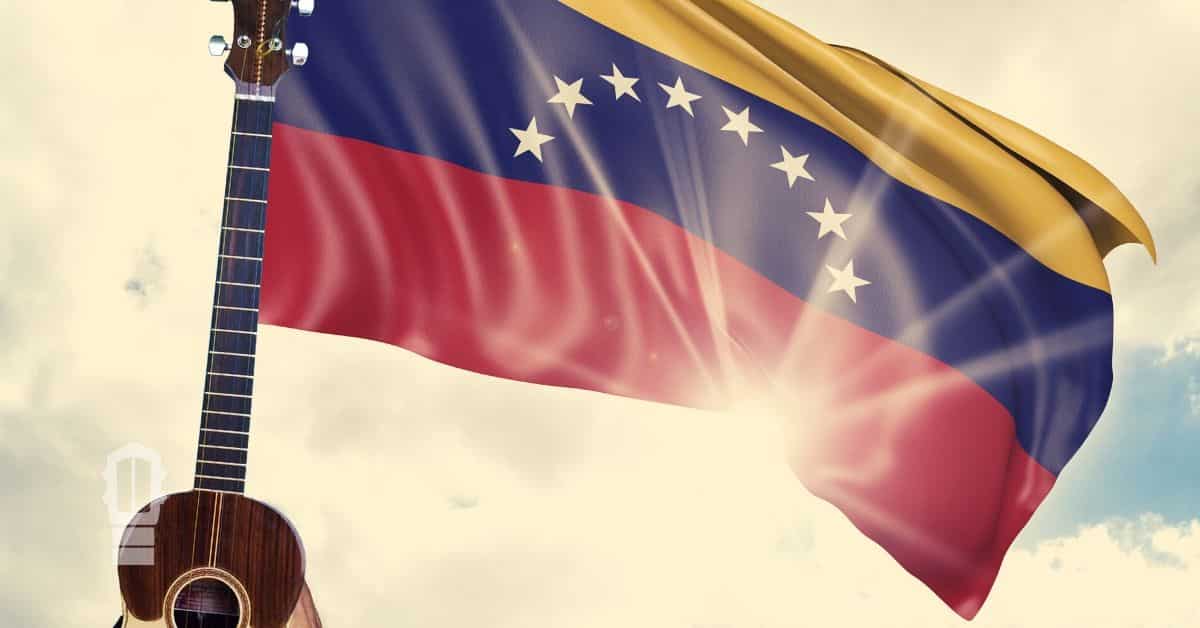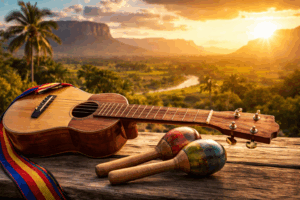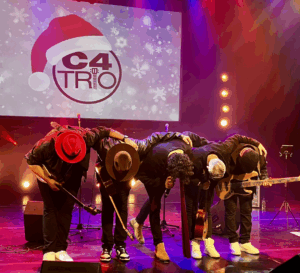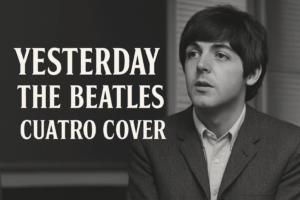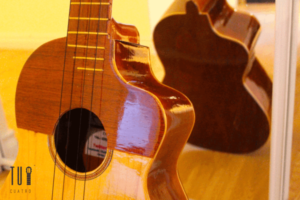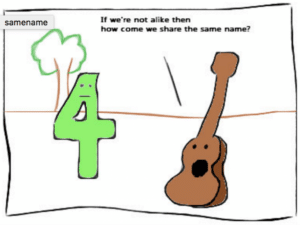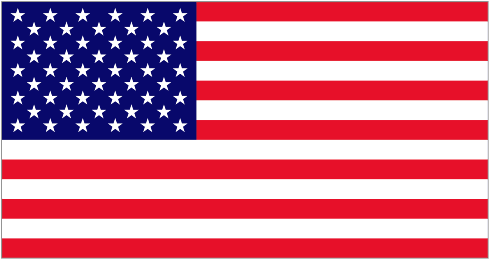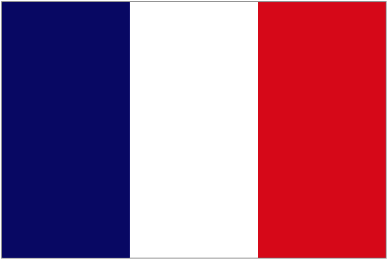Venezuelan music is a mix of genres and styles that represents Venezuelan’s identity at the deepest level imaginable. The multicultural approach to music that has happened during the history of Venezuela is so interesting that, despite the fact that any person born in Venezuela could recognize Venezuelan music by just listening to a few seconds of a song, so many different rhythms and genres are part of it, that it results very difficult for a non-Venezuelan to recognize the patterns.
From black, indigenous, Spanish ancestry, mixed with the hundreds of thousands of immigrants who have set foot in Venezuela, Venezuelan music is truly an example of a melting-pot, that somehow unites Venezuelans beyond borders under a unique name: Venezuelan music.
This being said, there is one music genre that would claim the “Venezuelan music” title with no contenders: The Joropo Music. Joropo is a specific genre of South American music that not only belongs to Venezuela, but is shared with Colombia in the shared plains.
Venezuelans have made it so deeply a part of the culture that, although this genre is played in other countries such as Colombia, they insist is pure Venezuelan. This is after many decades of having Joropo as the country’s national music, as it was dictated by one Venezuelan president sometime in the past.
Venezuelan music goes further
However, the joropo is not the only genre that the Venezuelan feels like belonging to their heart. There is also another musical genre that all Venezuelans enjoy during Christmas and New Year’s celebrations: La Gaita Zuliana.
La Gaita, a musical genre from Maracaibo, Zulia State, becomes the music of the entire country from October to December, when families begin to gather to prepare for the end of the year festivities and the music sounds out loud in homes with “Gaitas” from Maracaibo 15, Pillopo, Gran Coquivacoa, Guaco, Cardenales del Exito and the many other groups that have recorded Gaitas albums for decades, making the history of the musical genre rich and planted deep into the Venezuelan culture.
The Tambor de la Costa, a genre that comes from African roots, also makes part of Venezuelan genres and music.
El Calypso, from the other side of the country, also moves Venezuelans hearts in a certain way.
The Cuatro, Venezuelan music’s favorite instrument
Most of these genres are considered Venezuelan and carry something that Venezuelans consider even more Venezuelan above all else: The sound of the Cuatro, the famous “camburpinton”.
This instrument means all for a Venezuelan, whether they know how to play it or have no idea on how to strum it, the Cuatro says everything you need to know about Venezuelan music.
The Cuatro is considered as the national instrument of Venezuela and it is so part of the culture, that most people in Venezuela think the cuatro is only played in Venezuela, neglecting that this instrument is played and used in many other countries for their traditional and folk music as well.
Colombia, Aruba, Trinidad and Tobago, all share the Cuatro as their traditional instrument, used for most of the folk music for these countries.
That is why the Cuatro has earned the name of “Venezuelan Cuatro”. You’ll see thousands of websites, links, youtube videos and, of course, Venezuelans, calling it this way, regardless of the genre for which it is being used.
🎸 Want pro-level feedback on your Cuatro playing?
👉 Book a 1-on-1 Session with a Cuatro master and fix your rhythm, chords, or technique in just 30 minutes.
The Cuatro is undoubtedly the most important representation of the Venezuelan culture. It has a special place at the heart of Venezuelans and, for what we know, they would defend the idea of the Cuatro belonging exclusively to Venezuela to death.
Do you have your Cuatro and don’t know how to use it? Learn to tune the Cuatro here.
Venezuelan music around the world
No matter where a Venezuelan is, be it North America, Europe, or even China, that feeling of belonging when in touch with Venezuelan music will always accompany him. A joropo played at dawn always brings tears to those who listen, or a Gaita traditional makes more than one pick up the phone at midnight on a New Year’s Eve to try to contact relatives who are far away.
For Venezuelan, the most important thing is that, despite the fact that these musical genres, and others such as the Calypso, the Tambor, the Waltz, among others, are «borrowed» from other cultures, they carry them deep in the heart and appropriate them to a point where it is indisputable that they represent what Venezuelans are: a rich mix of cultures, traditions, immigration from many generations, culinary recipes and ways of being that vary as the music they listen to.
All this represents what each Venezuelan carries in the depths of his being, the essence of their lives, the only thing it matters: Their Venezuela.
